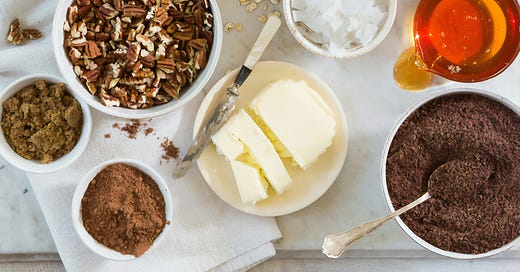Fueling for Endurance: A Complete Nutrition Guide for Triathletes 🚴♂️🏊♀️🏃♂️
This guide will help you master macronutrient balance, race-day fueling, and hydration strategies— Let’s dive in! 🏊♀️
Endurance sports, especially triathlon, demand more from your body than the average workout. Success hinges not just on your training plan but on how well you fuel your engine—your body. The right nutrition and hydration strategy can elevate performance, delay fatigue, and ensure a strong finish. 💥
Macronutrient Balance: The Performance Power Trio 🍎🥩🥑
Getting your carbs, proteins, and fats in balance is like tuning a triathlon bike—when everything clicks, you feel more energized during the day, there is enough energy for trainings and everyday life and recovery is faster. Coming race day, you fly!
1. Carbohydrates: Your Jet Fuel
Carbs are the MVP for triathletes, powering those long rides and runs. Think of glycogen as your energy bank account, and carbs are your deposits. Without them? You’re overdrafting, and it’s not pretty. 😩
Daily Needs: 5–7 g/kg of body weight for regular training, 7–10 g/kg during peak weeks.
Favorite Sources: Oatmeal (the OG endurance breakfast), bananas, pasta and rice.
Like I always say: big engines, big consumptions.
2. Protein: Repair & Rebuild
Protein is how the recovery magic happens. It’s what helps you bounce back after punishing hill repeats or killer swim sets.
Daily Needs: 1.2–2.0 g/kg of body weight.
Favorite Post workout: Greek yogurt + honey + berries.
3. Fats: Slow-Burn Energy
Fats are like the diesel engine of endurance—steady and reliable for those long, low-intensity days.
Daily Needs: 20–35% of your calories.
Favorites: Avocado toast, nut butter, and dark chocolate.
Pre-Race Nutrition: The Calm Before the Storm ⏰
Carbohydrate Loading: Let the Pasta Party Begin 🍝
Two to three days out, it’s time to stockpile glycogen. Think rice, bread, and pasta—but keep it simple. Avoid spicy foods the night before, unless you want fireworks at T1 (and not the good kind).
Race Morning: The Breakfast of Champions 🏅
Stick with tried-and-true foods you’ve tested in training. My go-to? Bread with jam, peanut butter and banana. I also like to have coffee on race morning to get things going.
Pro tip: Avoid high fiber foods the days before a race since it may cause gastrointestinal issues.
Fueling During the Race: Don’t Hit the Wall 🚧
Mid-race nutrition is where dreams are made—or shattered. Trust me, you don’t want to be that person begging for a gel at km 30.
Carbs Are King 👑
Aim for 30–90 g of carbs per hour, depending on race intensity. Gels, chews, and sports drinks are your best bet. Easily digestible and your body absorbs them quickly.
Gels are not all made equal. Make sure to try during training and find out what works for you. Get familiar with the taste, texture, how to open them and, more important, their content.
Hydration + Electrolytes = Happy Muscles 💦
Sweat like a fountain? Replace sodium and fluids regularly. A good rule of thumb is 500–700 ml of fluid and 300–600 mg of sodium per hour. Like gels, make sure to test and find out what works for you.
This has been an issue that I’ve been trying to solve for longer events since in the later stages I would get cramps, stomach pain, I would get dizzy for after afterwards and puke sometimes. I’m a heavy sweater so my latest approach was to actually do the math for sodium intake and increase it until I no longer felt these symptoms. I’m currently taking in 1500 mg per hour and so far the symptoms have disappeared. I’ll have to do a long transition workout to properly test it.
Hack: Choose gels and isotonic mixes with sodium, apart from salt caps and electrolytes pods. 🧂
Post-Race Nutrition: The Recovery Feast 🍔
Congrats, you made it! 🎉 Now it’s time to reward your body with the good stuff.
Carbs + Protein = Recovery Gold 🏆
Eat a 3:1 carb-to-protein meal within 30–60 minutes. My favorite? Chocolate milk and a peanut butter and jam sandwich. It’s basic, but it works.
Hydration Matters (Again)
Rehydrate like a pro. For every kg you lose during the race, drink 1.5 liters of water. Add electrolytes to avoid that post-race “I feel like a raisin” vibe.
Hydration Strategies: The Unsung Hero 🥤
Dehydration doesn’t just slow you down—it can derail your race entirely.
Know Your Sweat Rate: Weigh yourself pre- and post-training to estimate fluid loss. For every kg lost, drink ~1.5 liters of fluid. This was an approach I took to try to avoid my sweat related issues.
Adjust for Conditions: More sweat = more fluids. But cooler weather? Don’t slack—hydration still counts. Many people dehydrate during cold training.
Key Takeaways (and a Pep Talk) 💪
Carbs are your best friend. Love them. Use them.
Practice your fueling strategy during training— carbohydrates, water, and sodium. 🎭
Hydrate smart to stay strong.
Recovery isn’t optional—treat yourself right post-race.
Nutrition isn’t one-size-fits-all, but with some trial, error, and a few laughs along the way, you’ll find what works for you. Here’s to strong races and even stronger meals!



